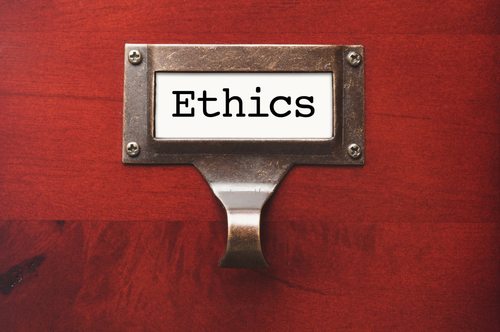
May 7, 2014;Financial Advisor
This is news that has to gall all nonprofits. Recall all the guff nonprofits get hit with concerning questions about nonprofit ethics, compliance, and so forth. A big series in the Washington Post about “asset diversions” set off much of the public in a paroxysm of suspicion regarding nonprofit accountability.
Are there unethical people inside some nonprofits, frequently taking advantage of nonprofits in order to be crooks and crumbs? You bet. Are there some nonprofits whose accountability is, to put it mildly, a bit lacking? Yes.
Let’s hope then that the outcry about the dubious accountability of private equity firms is fifty times greater than the hand-wringing about nonprofits. Drew Bowden, the director of the Office of Compliance Inspections and Examinations at the Securities and Exchange Commission, announced earlier this week that his inspectors had discovered more than half of private equity firms with violations of fee laws or material controls.
Read that again: More than half of private equity firms with violations. Bowden added that most private equity firms don’t provide their limited partnership investors with sufficient information so that they can effectively monitor the investments. In Bowden’s words, it is “opaqueness when transparency is most needed.”
Sign up for our free newsletters
Subscribe to NPQ's newsletters to have our top stories delivered directly to your inbox.
By signing up, you agree to our privacy policy and terms of use, and to receive messages from NPQ and our partners.
Let’s put it in the terms used by Businessweek: “The SEC found illegal fees or severe compliance shortfalls in more than half of the firms it examined.” [Emphasis added.] In Naked Capitalism, the headline was “SEC Official Describes Widespread Lawbreaking and Material Weakness in Controls in Private Equity Industry.” Private equity firms are a $3.5 trillion industry, so if half of the private equity firms are screwing around at the borders of ethics and accountability, it makes the problems of nonprofits look inconsequential.
Bowden’s speech went into detail about the different ways these illegalities play out in the private equity industry. Yves Ames in Naked Capitalism took one piece of Bowden’s text and offered this interpretation:
“Private equity provides uniquely lucrative temptations and opportunities to steal from investors. Yet, perversely, limited partners have blinded themselves to these risks. For over 30 years, their relationship has been shrouded in secrecy, a ‘trust me’ operation. As Bowden noted, ‘Lack of transparency and limited investor rights have been the norm in private equity for a very long time.’ Even worse, limited partners defend the general partners’ obsession with secrecy andreflexively reject requests for information even when it isn’t confidential.”
Bowden ticked off other schemes and scams perpetrated by some of the nation’s best-known private equity firms in a breathtakingly candid speech delivered to private equity fund managers themselves at the Private Equity International’s Private Fund Compliance Forum. It wasn’t a speech delivered to a neutral party or an interview done to a press outlet; Bowden delivered his message directly to the people who needed to hear it.
There is no such thing as acceptable corruption, especially in the nonprofit sector. Every instance of inappropriate, unethical, and illegal behavior in the nonprofit sector is reprehensible and does harm to both nonprofits and donors. As nonprofits, we should all pledge to eradicate the scofflaws in our midst.
But for public consumption, let’s make sure that the public sees problems of nonprofit ethics and accountability for what they are, a pittance compared to the widespread skimming and scamming perpetrated by some of the nation’s most powerful and profitable private equity firms. Maybe nonprofits themselves might take the hint, that when they call in private equity firms to instruct them on the power of the private markets in making social enterprise and social impact bonds work, nonprofits ought to very closely check the probity of their private equity advisors.—Rick Cohen












